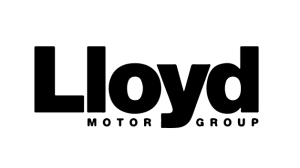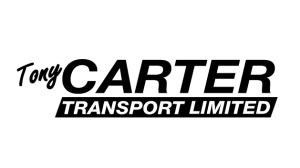
Heritage
EARLY RUGBY LEAGUE ON TYNESIDE
There have been several Tyneside-based rugby league teams over the years.
Wallsend RFC flirted with the code in the early years of the Northern Union, a South Shields team joined at the turn of the century and in 1938, Newcastle moved south of the Tyne and played a season of matches at the White City Sports Stadium but did not rejoin the league after World War Two. Several other teams have come and gone in the intervening years
The Charity Shield match and several full and junior internationals were held at the International Stadium from the 1980s and over the next two decades. An academy team, the Gateshead Mets, was formed, which played against the academy teams of professional clubs.
SUPER LEAGUE
Mid-way through the 1998 season, Gateshead was granted a franchise in the Super League ahead of Swansea and Cardiff. A competition was held to determine the name for this club, and Gateshead Thunder was born with Shaun McRae as head coach.
Despite early season problems in attracting fans to a new summer sport, by the end of the season the average gate had risen to 3,895. Gateshead finished in sixth place – just two points outside the play-offs. They had beaten St Helens home and away and beaten Wigan on the road in Edinburgh at Tynecastle. Matt Daylight was the joint leading try scorer in Super League and winger Ian Herron was one of the deadliest goal-kickers in the top flight.
In November of that year, Gateshead Thunder’s board announced the club would merge with Hull Sharks. The Association of Premiership Clubs blocked proposals for the newly merged company to enter a separate Hull-based team in the Northern Ford Premiership and so the new club would be called Hull and play all its home games in Hull. This was widely seen as a takeover simply to allow Hull to remain in Super League.
The fans of the Gateshead club set up a campaigning organisation, Thunder Storm, to fight the “merger”. Although this proved unsuccessful, it was the catalyst for a new Gateshead Thunder to be formed. The new Gateshead Thunder was accepted back to play in the Northern Ford Premiership on the 2nd August 2000 with a similar bid from Bramley being rejected. The new board had the stated objective of winning back Gateshead’s place in Super League within five years.
SECOND SQUAD
The new Thunder’s first game was a friendly for the Tolent Cup against another club that had been threatened with merger, Sheffield Eagles. The first official game was on the 3rd December 2000 with an 18-0 defeat to Hull Kingston Rovers. They finished third bottom under coach Andy Kelly with back to back wins over Hunslet and York were the only league successes and a win over amateurs Wigan St. Judes in the Challenge Cup.
Financial problems were again to trouble the club. A bold plan for the 2002 season failed, and when only one draw, 12-12 against Featherstone Rovers, was recorded after the first two months Thunder were forced to cut their losses. Andy Kelly and the club’s 15 Yorkshire-based players, were released as Thunder went into administration with spiralling debts.
THIRD SQUAD
Club sponsor Mike Jeffels took over the club through his Kicks Leisure organisation and former Bramley coach Paul Fletcher was brought in, taking over a young, inexperienced and predominantly locally produced side. Although they came close to victory against Keighley and Swinton, Thunder Mark III lost every game to finish bottom of the table.
2003 saw eight Australians added to the squad, along with Bill Ryan as a coaching adviser. After just eight games of the season and with the club in a difficult financial position, Kicks Leisure withdrew their sponsorship and chairman Steve Worsnop left the club.
A panel of supporters, including committee members of Thunder Storm, took over the running of the club in the interim period. This management committee was successful in persuading the RFL to allow Gateshead Thunder to enter National League Two. A business case based on the funding provided by the members’ club, lottery and matchday income was accepted by the governing body but was still significantly short of the minimum needed to run the club for the rest of the season, and a series of fundraising efforts were organised to fund the shortfall.
FOURTH SQUAD
The new era of Thunder Mark IV came with the Arriva Trains Cup victory over Workington Town at Gateshead RUFC’s ground; the International Stadium being unavailable. Fundraising efforts and sponsorship from local companies meant that by the end of the 2003 season Gateshead finished the year in the black, with all debts paid. On the field, however, the situation deteriorated: coach Paul Fletcher resigned after a defeat by London Skolars. The board appointed Seamus McCallion as head coach. The former Durham Cricket Chairman and head of Century FM, Bill Midgley, joined the board.
2005 saw the arrival of Dean Thomas as head coach at Gateshead. Dean was able to strengthen the squad, bringing a multi-national flavour to Tyneside rugby as he recruited players from Australia, the West Indies, Fiji and elsewhere. The strategy paid off, and Thomas guided Thunder into the play-offs, before they eventually went out to Workington Town. Off the field, the club underwent a restructuring, with new investment coming from Essex-based financier Neil MacPherson. The club returned to the status of a limited company, with three directors. After two stalled attempts, it was agreed that Gateshead Thunder would be allowed to use Newcastle Falcons’ Kingston Park stadium for a game against York. They also played a game at the venue in both 2006 and 2007, and the club stated that they hoped in future to be able to play one game a year at Kingston Park. Dean Thomas guided Gateshead into the play-offs for two seasons running. He left the club at the end of the 2006 season and was replaced by former Castleford coach, Australian Dave Woods.
2008 NATIONAL LEAGUE TWO CHAMPIONS
The 2008 season saw Gateshead wildly exceed expectations, going unbeaten for much of the year and winning promotion to National League One for the 2009 season as champions.
2009 THE CO-OPERATIVE CHAMPIONSHIP
Thunder’s plans for the 2009 season were disrupted when it was announced that Dave Woods had been sacked. Assistant Coach Chris Hood temporarily took over the coaching duties, and was later appointed permanently. With only a handful of players signed at the point of Woods’ departure, Hood was forced to put together a squad at the eleventh hour.
Several high-profile signings were made by Hood, including former NRL players Nick Youngquest, Kris Kahler, Paul Franze and Russ Aitken, but were unable to join the club until the finale of the French Elite season in May 2009. Super League players such as Hull KR’s Liam Watts and Castleford Tigers’ Nathan Massey, Jamie Cording and Anthony England were also taken on loan with a view to boosting the squad. However after a struggling start to the season, Thunder appointed Steve McCormack as Head Coach with Chris Hood returning to his role as Assistant Head Coach in April 2009.
Through the efforts of Hood (victories against Whitehaven & Doncaster) and McCormack (victory against Oldham in his first game in charge), Thunder were guided to being the last non-Super League team competing in the 2009 Challenge Cup. They reached the quarter-finals, playing against St Helens but lost 66-6. League victories against Halifax, Widnes, Leigh and Toulouse gave Thunder a chance of completing the ‘great escape’. Gateshead Thunder secured their Championship status at the expense of Leigh with an away win against Doncaster 0-56 in the final match of the regular season.
However, Gateshead Thunder’s chairman Steve Garside wound up Gateshead and Newcastle Rugby Ltd which ran the club in October 2009. Thunder Rugby Limited were formed in November 2009 as Gateshead’s new parent company and the club became a community club.
Following this breach of the insolvency rules in 2009 under the previous company, the new parent company decided that Thunder would be best placed in Championship One and elected for a voluntary demotion. However, the RFL also upheld a six-point deduction for the 2010 season.
RECENT HISTORY

The Keelmen – Forever Thunder
The name pays homage to the historic community of Tyne Keelmen — the hardworking boatmen whose strength and solidarity helped build Newcastle’s industrial legacy. Like their namesakes, Thunder’s 2024/25 squads embodied perseverance and collective pride, playing not for wealth or fame, but for each other and the city they represent.
Their story, now immortalised as “The Keelmen”, stands as a reminder of the club’s deep roots in Geordie heritage and the enduring power of unity in the face of adversity.
"On the River Tyne, a unique and determined community once thrived—the Keelmen. These were not just labourers; they were the lifeblood of Newcastle's coal trade for centuries, plying the treacherous waters in their flat-bottomed keels. Their existence was a testament to raw grit and unwavering solidarity. They battled against the currents and the elements, their livelihood dependent on their ability to work as one, transporting coal from the riverbanks to the great ships waiting at sea. They stood together against all odds, their fierce loyalty to each other a defining characteristic that allowed them to survive and even flourish. Their legacy is one of resilience and a shared spirit, a powerful example of a community that, despite the hardship, refused to be broken.
Just as the Keelmen faced their own formidable challenges, so too did the Newcastle Thunder squads of 2024 and 2025. This was a team forged not by vast contracts or celebrity status, but by a deeper, more profound bond. They were a young group, many of them friends who had risen through the club's academy ranks, playing for the love of the game and for the city they represented. With the club's future hanging in the balance, they became the living embodiment of the Keelmen's spirit. They played for each other, for their friends, their teammates, and to secure the club’s future. Their dedication on the field, often for little financial reward, was a powerful display of a brotherhood that went beyond the scorecard. They fought together, they drank together, and they gave everything they had to keep Newcastle Thunder alive.
While their time together as a squad will come to an end, their contribution will forever be etched into the club's history. These young men did more than just play rugby; they embodied the very essence of the Keelmen. They were determined, loyal, and committed to a cause bigger than themselves. Their names may not be on the team sheets of the future, but their legacy will be a permanent and cherished part of the Newcastle Thunder story. They are, and always will be remembered as The Keelmen of Newcastle Thunder."






